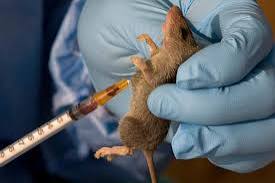The Nigeria Centre for Disease Control and Prevention (NCDC) has raised concerns over the rising fatality rate of Lassa fever, which has killed no fewer than 152 people across 21 states within the first 28 weeks of 2025.
In its latest epidemiological report released on Monday, the agency said that despite a slight drop in the number of confirmed cases compared to the same period in 2024, the case fatality rate has increased to 18.7 per cent—up from 17.3 per cent recorded last year.
So far, 811 confirmed infections and over 6,520 suspected cases have been reported in 105 local government areas, with the worst-hit states being Ondo, Bauchi, Edo, Taraba, and Ebonyi.
“In week 28 alone, we recorded 11 new confirmed cases and one death, with reports coming from Ondo, Edo, and Benue,” the NCDC stated. However, no healthcare workers were affected during that period.
The most affected demographic remains individuals aged 21 to 30 years, with infections distributed almost evenly between males and females.
The agency attributed the spike in deaths to delayed hospital visits, limited access to early treatment, poor environmental hygiene, and low awareness levels in vulnerable communities. It lamented that many patients present late at health facilities, making recovery difficult.
“Poor sanitation and inadequate health-seeking behaviour remain critical issues. The high cost of treatment also discourages prompt response to symptoms,” the report noted.
To curb the outbreak, the NCDC has deployed 10 National Rapid Response Teams to high-risk areas, using a One Health approach.
It also launched clinical trials in Ondo State to improve case management and trained frontline health workers in Bauchi, Ebonyi, and Benue states.
In partnership with Nigeria Health Watch, WHO, Pro-Health International, and IHVN, the NCDC has intensified community sensitisation and environmental campaigns.
Additionally, the agency has rolled out an Infection Prevention and Control (IPC) e-learning platform, supported by the Global Fund, and distributed Ribavirin, personal protective equipment (PPE), and disinfectants to affected states and treatment centres.
The NCDC urged the public to maintain proper hygiene, avoid contact with rodents, and seek immediate medical attention at the onset of symptoms such as fever, headache, vomiting, or unexplained bleeding.
“Lassa fever is primarily transmitted through exposure to urine or faeces of infected rats, and it can also spread via bodily fluids or contaminated medical equipment,” the agency warned.
Citizens are encouraged to follow health advisories and reach out via the toll-free line 6232 for inquiries or assistance.
Do you want to share a story with us? Do you want to advertise with us? Do you need publicity for a product, service, or event? Contact us on WhatsApp +2348183319097 Email: platformtimes@gmail.com
We are committed to impactful investigative journalism for human interest and social justice. Your donation will help us tell more stories. Kindly donate any amount HERE




